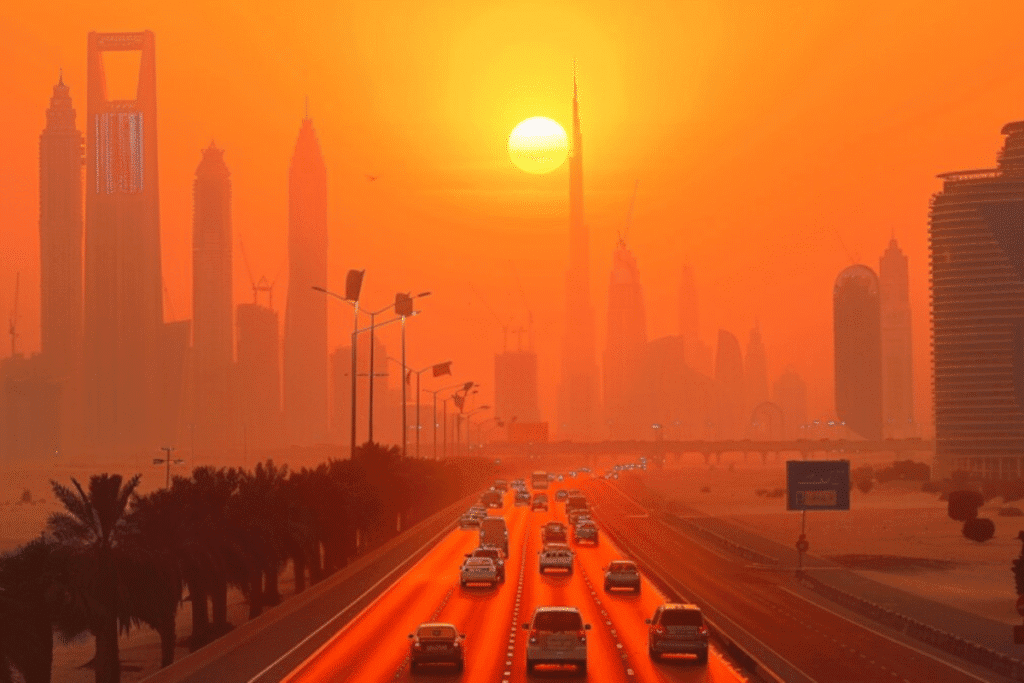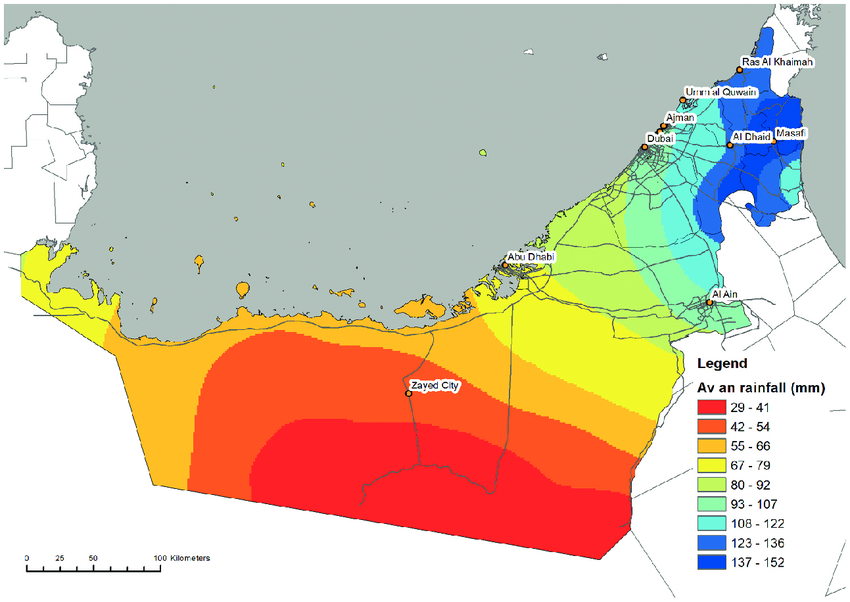The United Arab Emirates is known for its towering skyscrapers, futuristic cities, and vast deserts. But today, the country is facing a new and growing challenge — climate change. Rising temperatures are starting to reshape both the natural environment and how cities are being planned and built. From coral reefs to city streets, the heat is leaving its mark everywhere.
A Hotter UAE: What the Numbers Say
Over the past few decades, the UAE has seen a noticeable rise in average temperatures. According to climate experts, the country is warming at nearly twice the global average. Summer temperatures now regularly climb above 50°C in some areas. This extreme heat is no longer just a summer issue — it’s affecting life all year round.
With more heatwaves and less rainfall, the UAE is under increasing pressure to adapt quickly. These changes aren’t just uncomfortable; they pose serious risks to health, ecosystems, and city infrastructure.

Nature Is Feeling the Heat First

One of the first victims of rising temperatures is the UAE’s natural environment. The region’s fragile ecosystems — from deserts to mangroves and coral reefs — are all being impacted.
Coral Reefs: The warm waters of the Arabian Gulf are home to vibrant coral reefs. But with sea temperatures rising, these reefs are experiencing bleaching — a condition where corals lose their color and life-supporting algae. Bleaching weakens the corals and makes them more likely to die. This not only harms marine biodiversity but also affects the fishing industry.
Mangroves and Wetlands: Mangrove forests, which protect coastlines and support bird and marine life, are also at risk. Higher temperatures and changing tides could damage these important natural shields. Without them, coastlines become more vulnerable to erosion and flooding.
Wildlife and Desert Life: Desert animals, such as Arabian oryx, sand cats, and foxes, are struggling to survive in the hotter climate. With less water and fewer food sources, their habitats are shrinking. Many species are moving to cooler areas — if they can find them.
Cities on Alert: Planning for a Hot Future
It’s not just nature that’s feeling the pressure. Urban planners and city officials are now being forced to rethink how UAE cities are built.
Cooling the Urban Heat Islands: Cities like Dubai and Abu Dhabi are experiencing what’s known as the “urban heat island” effect. This means cities are hotter than surrounding rural areas because of concrete buildings, roads, and vehicles. To fight this, new plans are being made to add more green spaces, rooftop gardens, and shaded walkways.
Smart Building Designs: New buildings are being designed to use less energy and stay cooler naturally. Glass panels that reflect sunlight, heat-resistant materials, and smart ventilation systems are becoming common. These features not only help reduce electricity use but also keep buildings more comfortable.
Public Transportation and Mobility: High heat levels discourage people from walking or cycling. As a result, more effort is being put into improving public transportation systems. Air-conditioned metro stations, shaded bus stops, and electric buses are part of the solution.
Water Worries: A Growing Concern
One of the biggest challenges linked to rising temperatures is water scarcity. The UAE already depends heavily on desalinated seawater. But higher temperatures mean more water is needed for farming, cooling buildings, and daily use.
Farming Under Stress: Local farmers are facing a tough battle. Crops need more water, but it’s becoming harder and more expensive to provide it. This makes the idea of “sustainable farming” more important than ever. Many are turning to advanced methods like hydroponics and vertical farming to save water and grow more food.
Saving Every Drop: The government is also pushing for better water conservation. New rules and public awareness campaigns are encouraging people to reduce water waste in homes and businesses. Smart irrigation systems are helping keep parks green without wasting resources.
Innovation Leads the Way

Despite the challenges, the UAE is not standing still. Innovation and technology are playing a big role in the country’s response to climate change.
Green Building Codes: New laws are making it necessary for developers to include climate-friendly designs in their projects. The Estidama Pearl Rating System in Abu Dhabi and Dubai’s Green Building Regulations are examples of these efforts.
Solar Power and Renewable Energy: The UAE is one of the leading countries in the region when it comes to clean energy. With large solar farms like Noor Abu Dhabi and the Mohammed bin Rashid Al Maktoum Solar Park, the country is investing in a future that relies less on oil and more on the sun.
Cloud Seeding and Rain Enhancement: To fight water scarcity, the UAE is using cloud seeding — a process where chemicals are added to clouds to encourage rain. While not a perfect solution, it helps increase rainfall during dry months.
Educating the Public: Awareness Is Key
One of the most powerful tools in this battle is education. Schools, communities, and even social media are being used to spread awareness about climate change. From young students planting trees to adults switching to eco-friendly habits, every small action counts.
Events like Earth Hour, sustainability festivals, and eco-awareness drives are helping build a stronger connection between people and the planet. More citizens are now aware of how their daily choices — like turning off unused lights or reducing plastic use — can make a difference.
The Road Ahead: Challenges and Hope
The UAE is in a unique position. As a country with rapid development and a strong vision for the future, it can become a global example of how to tackle climate change. But the road is not easy. Rising temperatures will continue to test both nature and cities.
Still, with bold leadership, smart planning, and community support, the UAE can turn this crisis into an opportunity. By embracing sustainability, investing in technology, and protecting the environment, the country is working to build a future where people and nature thrive — even in the heat.
Also read: UAE’s Big Move in AI: Partnering With U.S. Tech Giants













